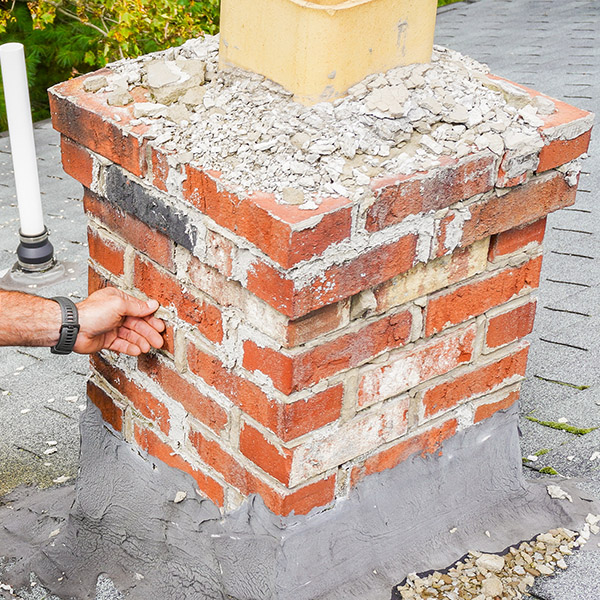Should You Use a Chimney Sealant?
Your chimney is an integral feature of your home, making it safe to use your fireplace, heating stove, and other attached heating appliances. Perched above the roof, it is also the highest point of your home. As a result, it is in a constant battle with Mother Nature, from freezing rain, snow, and ice in the winter, to thunderstorms and high humidity in the summer. These extreme weather swings can accelerate the wear and tear of the porous brick or stone masonry and mortar, which lead to a leaky chimney.
The Augusta, GA, area receives almost 50-inches of rain annually, more than 25% above the national average. The constant exposure to moisture can damage the masonry, providing several pathways for water to leak into the chimney. The right type of chimney sealant repels moisture, protecting your masonry from future water damage. Here’s why folks from the Central Augusta River Area (CSRA) to the South Carolina Midlands region should use a chimney sealant:
 How Moisture Affects the Chimney
How Moisture Affects the Chimney
Most masonry chimneys in Georgia and South Carolina are brick and mortar. While masonry chimneys are durable structures, they are porous, making them vulnerable to damage when exposed to moisture.
Eventually, the pounding rain and other extreme weather that some areas receive like hail, snow, and ice can cause cracks in the brick and mortar. Each time it rains, snows, or freezes and thaws, the cracks get bigger and bigger.
At some point, the mortar decays, and bricks chip, flake, and crumble. As the moisture damage worsens, bricks loosen and separate from the chimney. The decaying mortar leaves gaps in the joints, compromising the chimney’s structural integrity. Without immediate attention, the chimney is at risk of a partial or complete collapse.
Is It Worth Sealing a Chimney?
So, is it worth sealing a chimney? Considering that masonry repairs can cost anywhere from $500 for minor damage to over $15,000 for rebuilding a chimney, sealing a chimney is a small investment to protect the masonry from future water damage and more costly repairs.
Five Signs Your Chimney Has Moisture Damage
- White stains (efflorescence) on the bricks
- Spalling bricks
- Mortar is decaying or missing
- Chimney crown cracks
- Flue liner damage
Which Type of Chimney Sealant Should You Use?
We recommend using a water-based, vapor-permeable chimney sealant formulated explicitly for waterproofing brick chimneys. This type of sealant allows the masonry to “breathe,” allowing any trapped moisture to evaporate. In addition, the sealant repels rain, snow, and ice, which will provide years of masonry protection, reducing repairs, and prolonging the lifespan of your chimney system.
On the other hand, applying the wrong type of sealant to your chimney may prevent any absorbed moisture from evaporating, which could result in more water damage. Therefore, you should always consult with a Certified Chimney Professional®, like Advanced Chimney Sweep, before applying a chimney sealant.
How to Protect Your Chimney
Advanced Chimney Sweep provides professional chimney sealant and waterproofing protection for homeowners in Garden City, GA, Hardeeville, SC, and communities throughout the Central Augusta River Valley Area (CSRA) and the South Carolina Midlands. Call (706) 833-4630 or (803) 508-3990 to schedule an appointment. You can also contact us online today!





